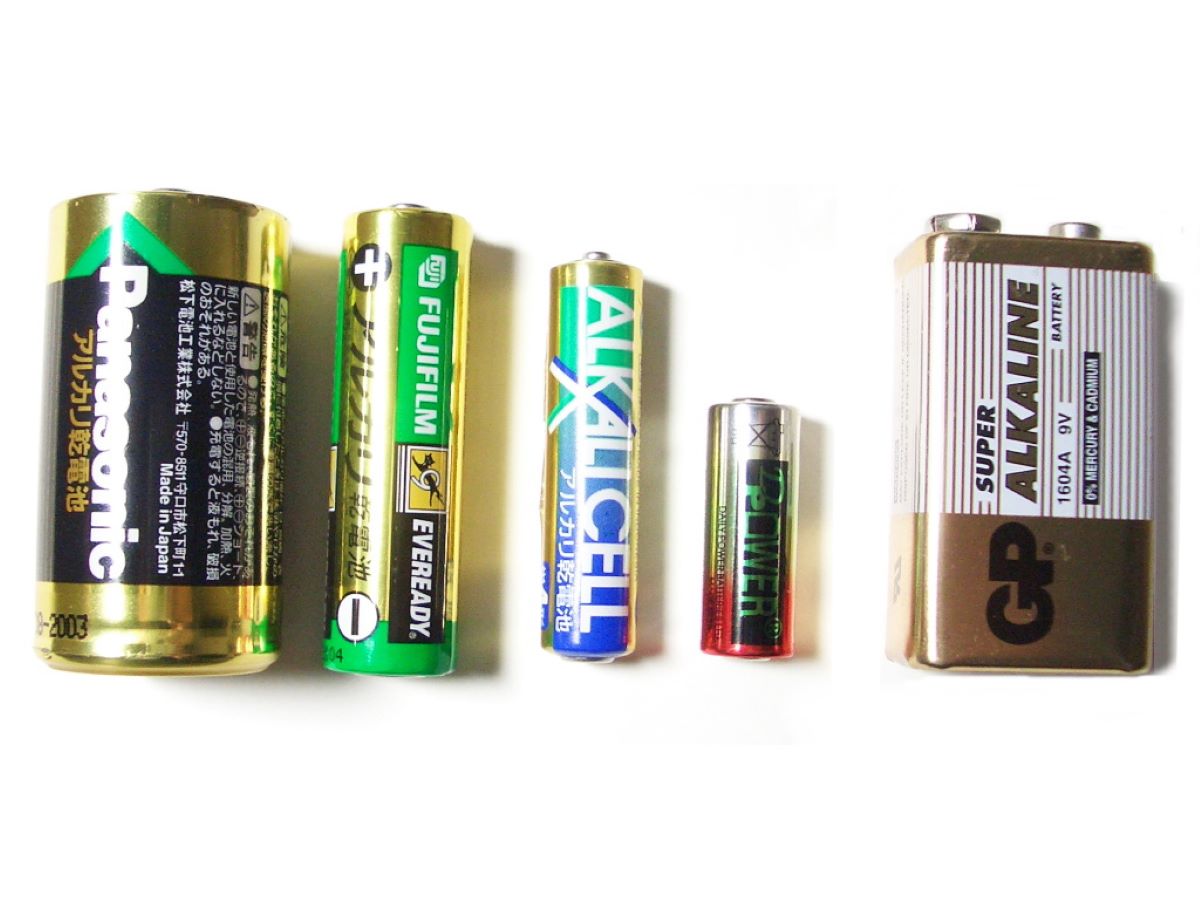

Articles
How To Store Alkaline Batteries
Modified: January 6, 2024
Discover the best storage methods for alkaline batteries in this informative article. Learn how to prolong their lifespan and prevent leakage.
(Many of the links in this article redirect to a specific reviewed product. Your purchase of these products through affiliate links helps to generate commission for Storables.com, at no extra cost. Learn more)
Introduction
Alkaline batteries are a common power source for various electronic devices, from remote controls to toys and flashlights. These batteries are widely used because they are affordable, portable, and have a long shelf life. However, improper storage of alkaline batteries can lead to reduced performance or even leakage, potentially damaging the devices they are used in.
In this article, we will discuss the importance of proper storage for alkaline batteries and provide you with valuable tips on how to store them effectively. By following these guidelines, you can ensure the longevity and optimal performance of your alkaline batteries.
Key Takeaways:
- Proper storage of alkaline batteries is crucial for maintaining performance, prolonging shelf life, and ensuring device safety. Follow temperature, humidity, and container guidelines to preserve battery quality.
- Organize and label stored alkaline batteries for easy retrieval and efficient use. Regularly check expiration dates, test batteries, and dispose of expired ones properly to maintain a reliable collection.
Read more: How To Store Alkaline Water
Step 1: Understanding Alkaline Batteries
Before we dive into the storage process, it’s essential to understand the basics of alkaline batteries. Alkaline batteries are a type of disposable battery that uses an alkaline electrolyte, typically potassium hydroxide, to generate electrical energy through a chemical reaction.
These batteries are known for their higher energy density and longer shelf life compared to other types of batteries. Alkaline batteries are available in various sizes, including AA, AAA, C, D, and 9V, making them compatible with a wide range of devices.
It’s important to note that alkaline batteries do have a limited lifespan, even when not in use. Over time, the electrolyte inside the battery can lose its effectiveness, leading to a decrease in performance. This is why proper storage is crucial to preserve the battery’s capacity and extend its useful life.
Additionally, alkaline batteries contain certain metals and chemicals that can be harmful to the environment if not disposed of properly. So it’s not only about maintaining battery performance but also about being environmentally responsible.
Now that we have a clearer understanding of alkaline batteries, let’s move on to the next step: proper storage conditions.
Step 2: Proper Storage Conditions
To ensure the longevity and optimal performance of alkaline batteries, it’s important to store them in suitable conditions. Here are the key factors to consider:
- Temperature: Alkaline batteries should be stored at room temperature, ideally between 59°F (15°C) and 77°F (25°C). Avoid exposing them to extreme temperatures, such as direct sunlight, heaters, or freezing temperatures, as this can affect their performance.
- Humidity: Moisture can impact the integrity of alkaline batteries. Store them in a dry environment and avoid areas with high humidity, such as bathrooms or basements. Consider using airtight containers to provide an additional layer of protection against moisture.
- Avoid Vibrations: Excessive vibrations can cause damage to the internal components of alkaline batteries. Store them in a stable and secure location, away from devices that generate vibrations, such as washing machines, speakers, or heavy machinery.
- Avoid Contact with Metal Objects: Alkaline batteries should not come into contact with metal objects, as this can potentially lead to short circuits or corrosion. Keep them away from coins, keys, or other metallic items that can cause damage.
By storing alkaline batteries in the appropriate conditions, you can maintain their performance and prevent any potential issues that may arise from exposure to extreme temperatures, moisture, or external factors.
In the next step, we’ll discuss the importance of choosing the right container for storing alkaline batteries.
Step 3: Choosing the Right Container
When it comes to storing alkaline batteries, selecting the right container is crucial. The right container not only keeps the batteries organized but also provides protection against damage and prevents unintentional contact with other objects. Here are some considerations for choosing the right container:
- Non-Conductive Material: Opt for containers made of non-conductive materials like plastic or cardboard. This helps to prevent any accidental short circuits or electrical discharge that can occur when batteries come into contact with conductive materials like metal.
- Individual Compartments: Look for a container with individual compartments for each battery. This ensures that the batteries don’t touch each other, reducing the risk of short circuits and extending their overall shelf life.
- Tight-Fitting Lid: Ensure that the container has a tight-fitting lid or closure mechanism. This helps to keep the batteries secure and protect them from dust, moisture, and other potential contaminants.
- Transparent: Consider opting for a transparent container, as it allows you to easily identify and access the batteries when needed. This can save you time and effort, especially when you have a collection of batteries for various devices.
- Size Considerations: Choose a container that can accommodate the sizes of alkaline batteries you typically use. It’s helpful to have separate containers for different battery sizes for better organization.
Remember, the container you choose should be dedicated solely to storing alkaline batteries and kept in a safe location away from children or pets.
Now that you’ve selected the right container, it’s time to move on to the next step: organizing and labeling.
Store alkaline batteries in a cool, dry place at room temperature. Avoid extreme temperatures and humidity, and keep them away from metal objects that could cause a short circuit.
Step 4: Organizing and Labeling
Proper organization and labeling of your stored alkaline batteries not only help you keep track of your inventory but also make it easier to retrieve the right battery when needed. Follow these tips to maintain an organized storage system:
- Categorize by Size: If you have different sizes of alkaline batteries, it’s helpful to categorize them by size. This ensures that you can quickly locate the right battery for your device without rummaging through the entire collection.
- Utilize Dividers or Inserts: Within the container, consider using dividers or inserts to separate each battery or size category. This further enhances organization and prevents the batteries from mixing or touching each other.
- Labeling: Label each compartment or section of the container with the specific battery size or the device it is intended for. This makes it easy to identify and retrieve the required battery quickly.
- Expiration Dates: If you have multiple batteries with different expiration dates, create a system to track and label each battery with its expiration date. This ensures that you prioritize using batteries with the nearest expiration date before those that have a longer shelf life.
- Regular Inventory Check: Set a reminder to periodically check your battery inventory and discard any expired or damaged batteries. This helps maintain a reliable collection of batteries and ensures you are only using those in good condition.
By organizing and labeling your stored alkaline batteries, you can save time and energy when searching for the right battery. Furthermore, it promotes efficient use and ensures that you are aware of the condition of each battery in your collection.
Now let’s move on to the final step, where we will discuss some additional tips for battery storage.
Read more: How To Store A Battery
Step 5: Additional Tips for Battery Storage
In addition to the previous steps, here are some extra tips to further enhance the storage of your alkaline batteries:
- Keep Unused Batteries in Original Packaging: If you have unused alkaline batteries that are still in their original packaging, it’s best to keep them in that packaging. The original packaging provides an added layer of protection against moisture and other potential contaminants.
- Avoid Mixing New and Used Batteries: To prevent confusion and potential issues, avoid storing new and used batteries together. Keep them separate to ensure that you don’t accidentally use a half-drained or expired battery.
- Store Batteries Upright: It’s recommended to store alkaline batteries in an upright position. This helps prevent potential contact between the terminals and other surfaces, reducing the risk of electrical discharge or corrosion.
- Regularly Test Stored Batteries: Periodically test the stored batteries to ensure they still hold adequate charge. This allows you to identify any batteries that may have degraded or require replacement.
- Dispose of Expired or Damaged Batteries Properly: When you come across expired or damaged alkaline batteries during your inventory checks, it’s crucial to dispose of them properly. Many local recycling centers or electronic stores have dedicated battery recycling programs to ensure the safe and environmentally-friendly disposal of batteries.
By following these additional tips, you can maintain the quality and efficiency of your alkaline batteries, ensuring they are ready for use whenever you need them.
Let’s wrap up our discussion on storing alkaline batteries.
Conclusion
Proper storage of alkaline batteries is essential for preserving their performance, prolonging their shelf life, and ensuring the safety of the devices they power. By implementing the steps outlined in this article, you can effectively store your alkaline batteries and reap the benefits of longer-lasting and reliable power sources.
Remember to store alkaline batteries in appropriate conditions, including maintaining a suitable temperature and humidity level, avoiding vibrations and contact with metal objects. Choosing the right container with individual compartments and a tight-fitting lid is crucial to preventing damage and prolonging battery life.
Organizing and labeling your stored batteries further enhances accessibility and allows for quicker retrieval. Regularly checking the expiration dates and conducting inventory to discard expired or damaged batteries helps maintain a reliable collection.
Additional tips, such as keeping unused batteries in their original packaging, avoiding the mixing of new and used batteries, storing batteries upright, testing stored batteries periodically, and proper disposal of expired or damaged batteries, contribute to a well-maintained battery storage system.
By following these guidelines, you can ensure that your alkaline batteries are always ready for use, providing optimal performance when you need them most. So, take the time to properly store your alkaline batteries and enjoy the convenience and reliability they offer.
Now you have the knowledge and tools to confidently store your alkaline batteries and preserve their functionality. Happy storing!
Frequently Asked Questions about How To Store Alkaline Batteries
Was this page helpful?
At Storables.com, we guarantee accurate and reliable information. Our content, validated by Expert Board Contributors, is crafted following stringent Editorial Policies. We're committed to providing you with well-researched, expert-backed insights for all your informational needs.
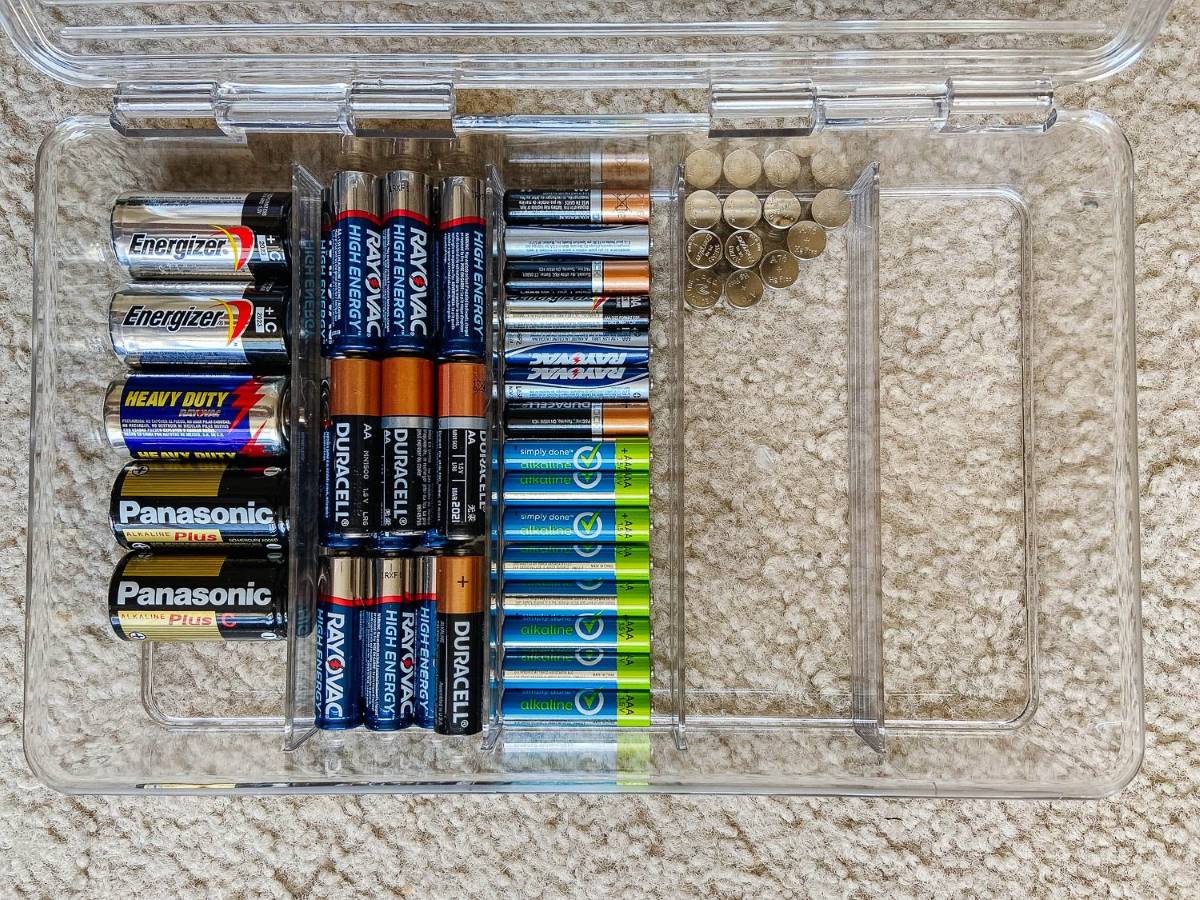
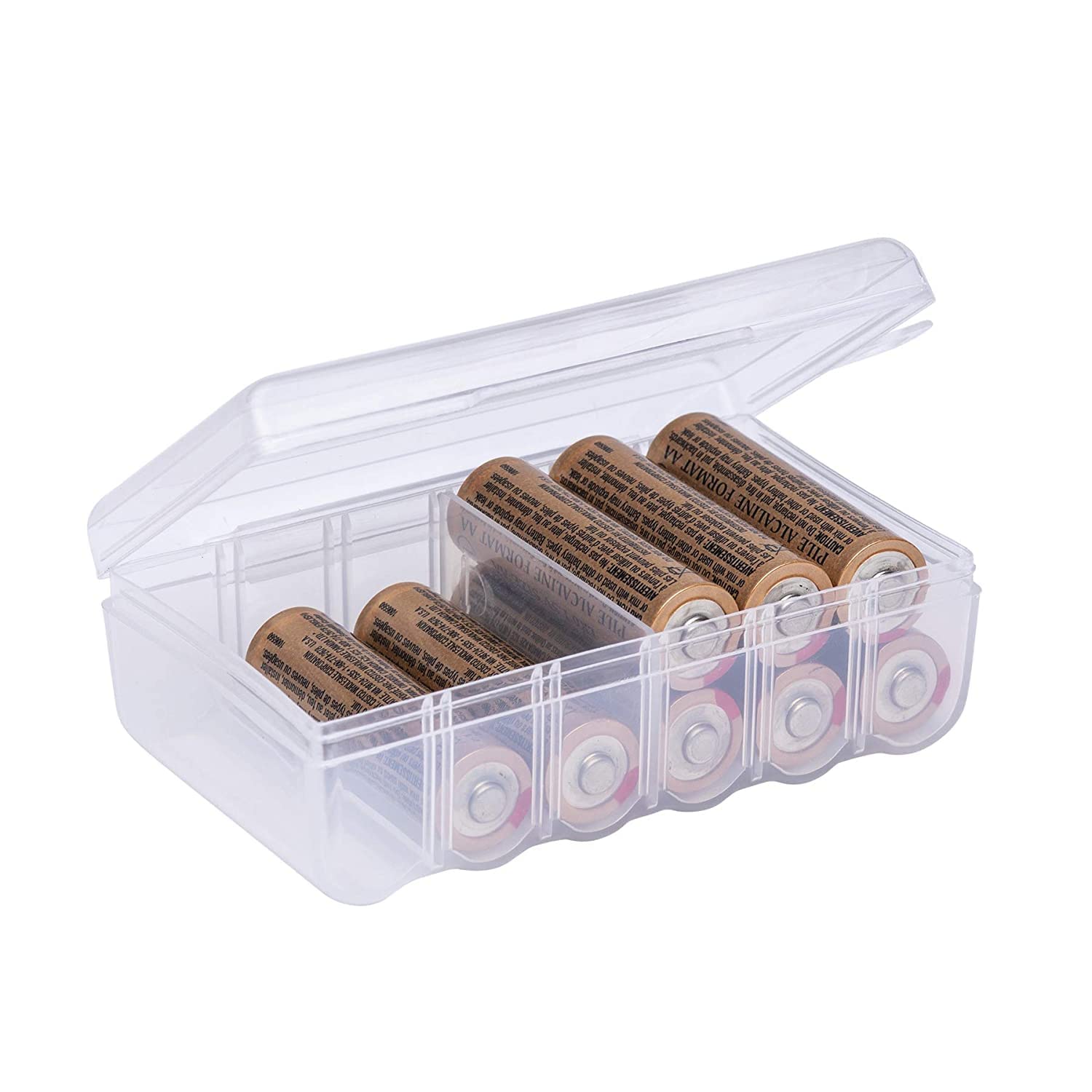
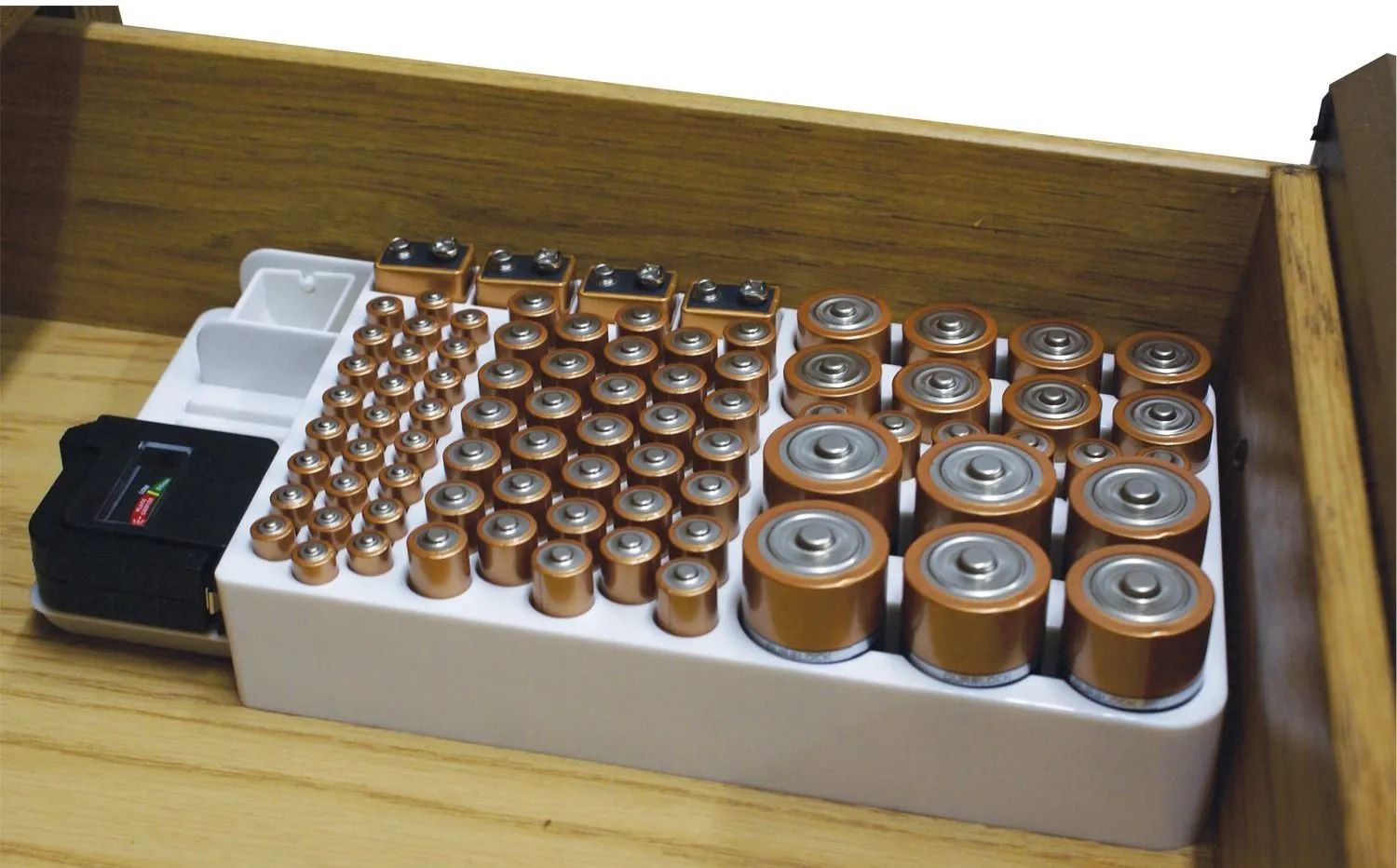

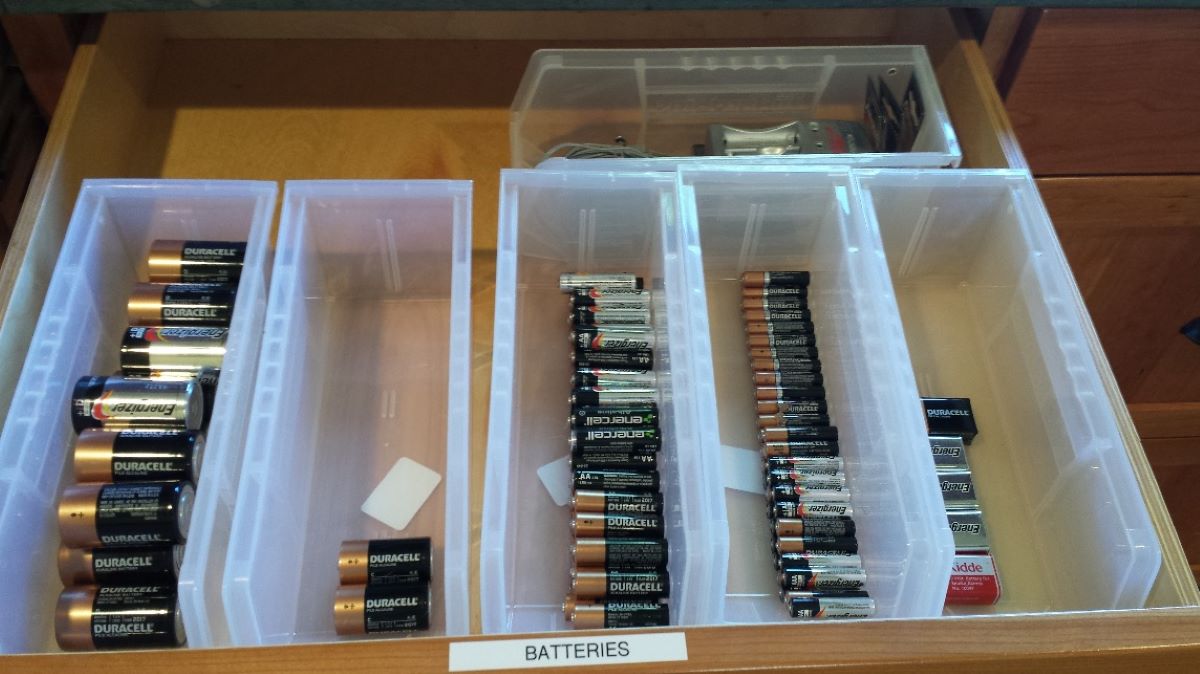
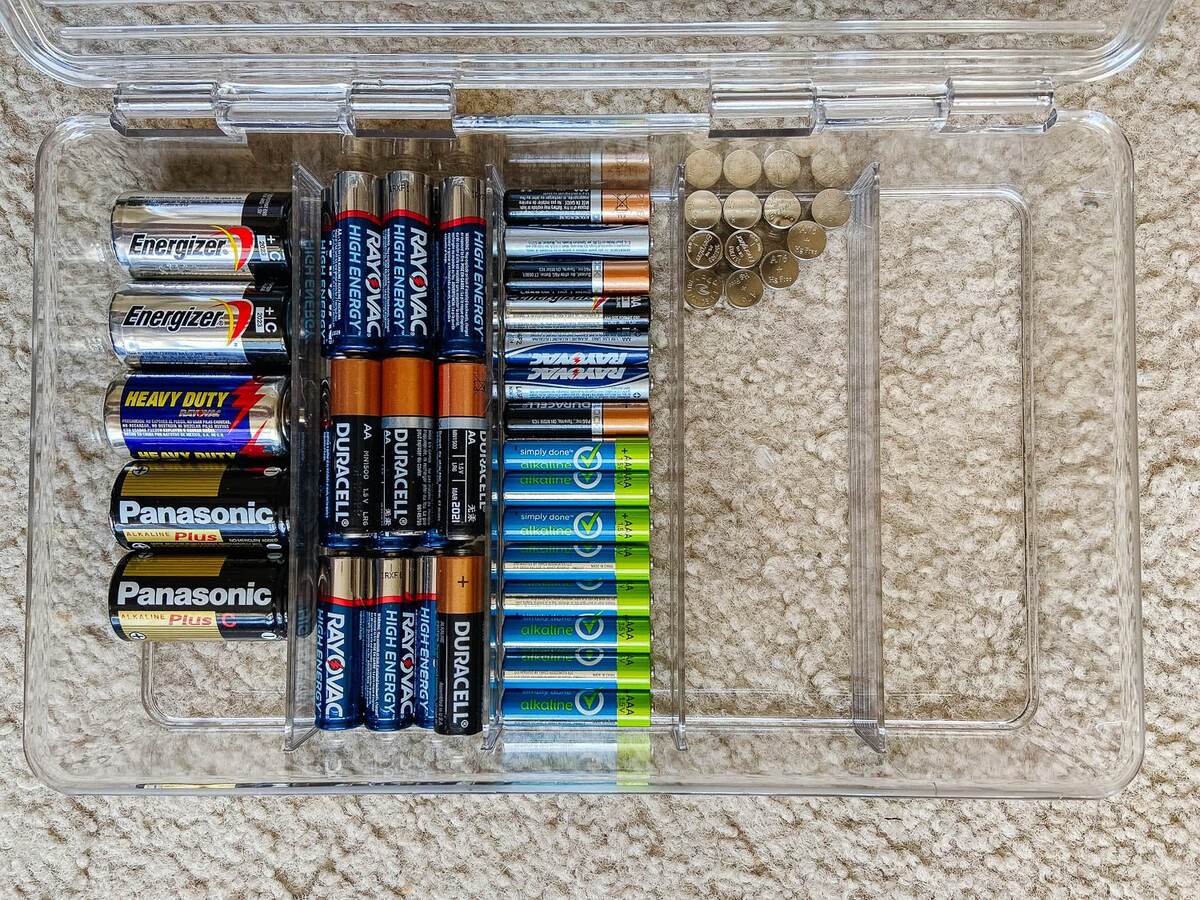

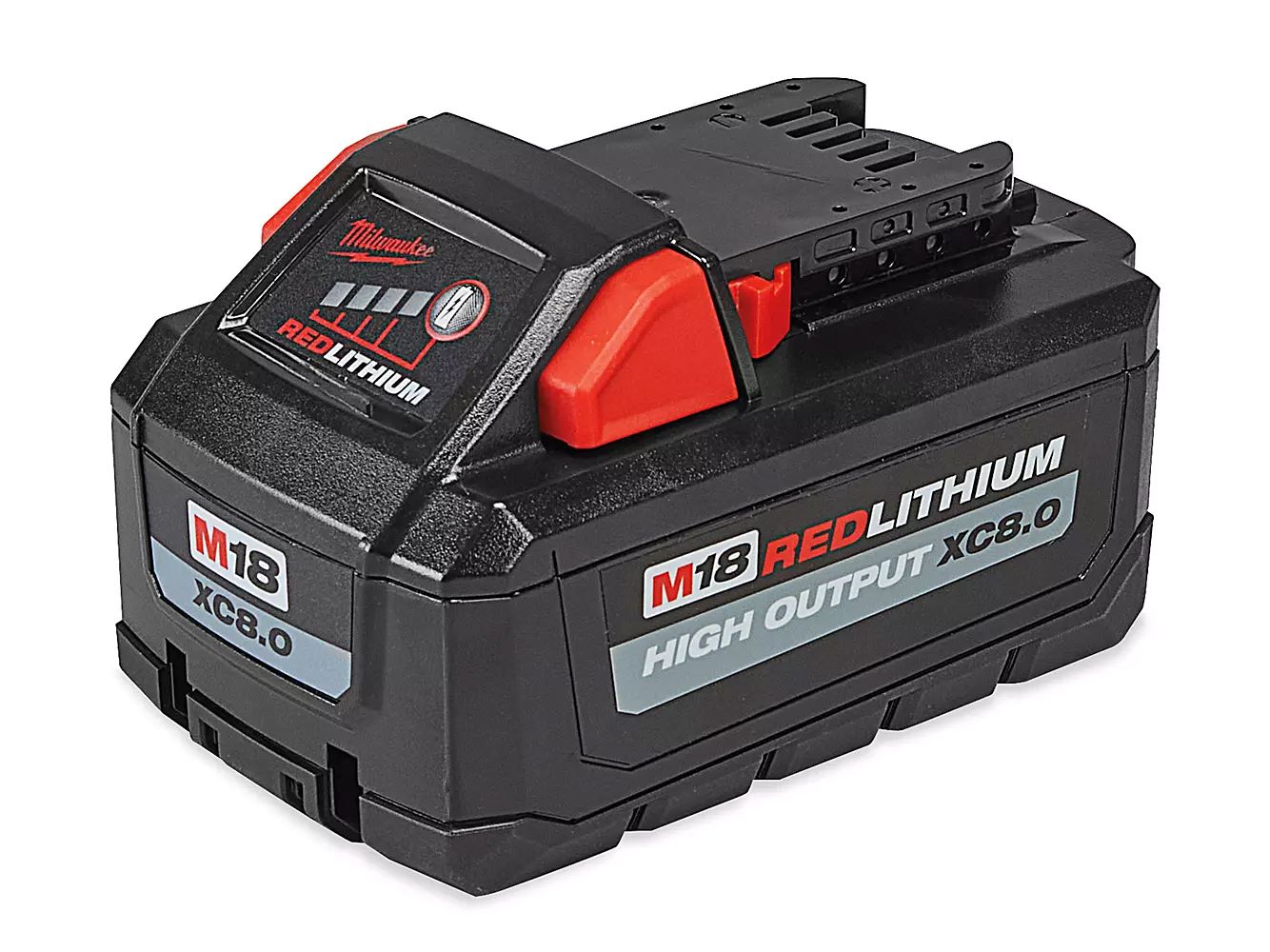

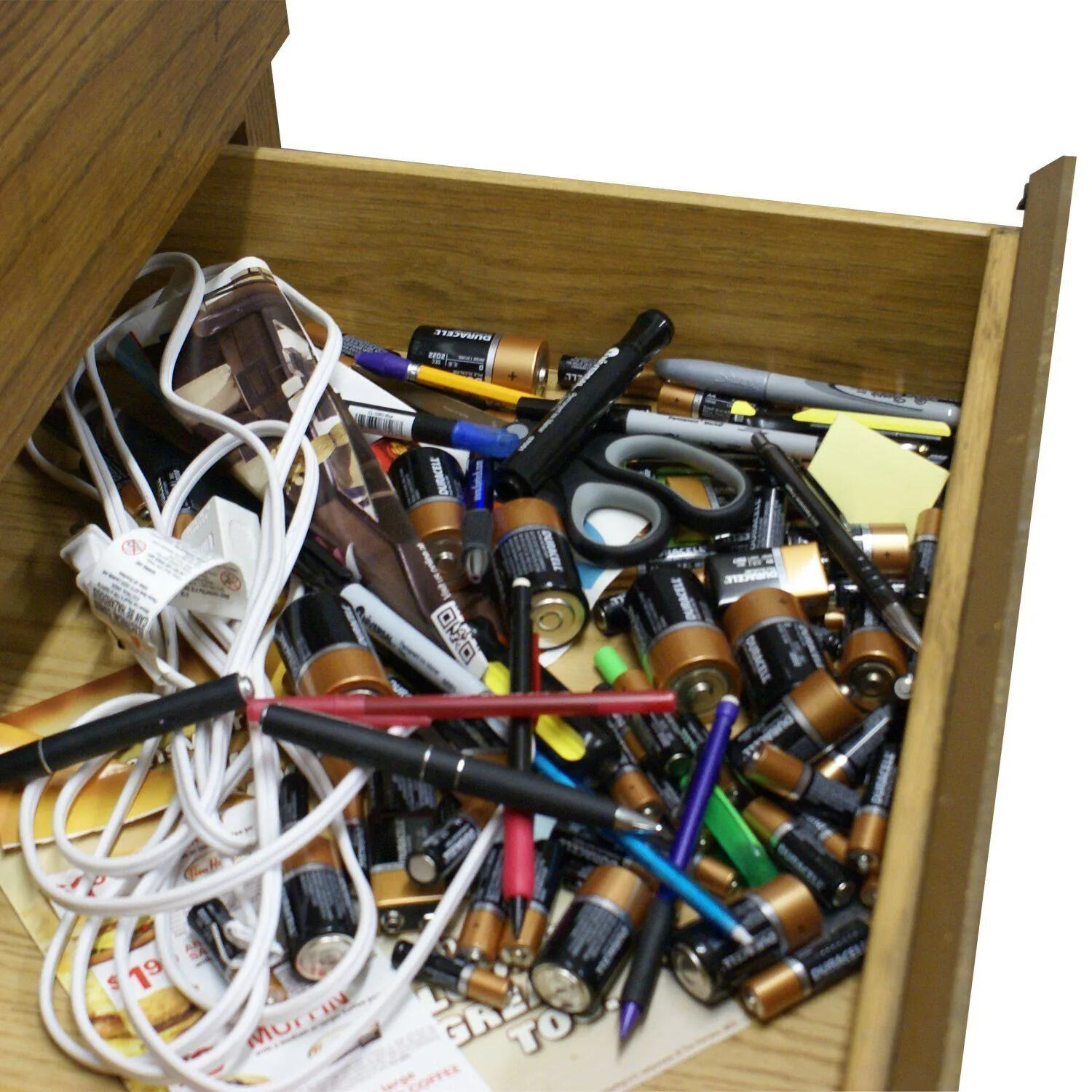
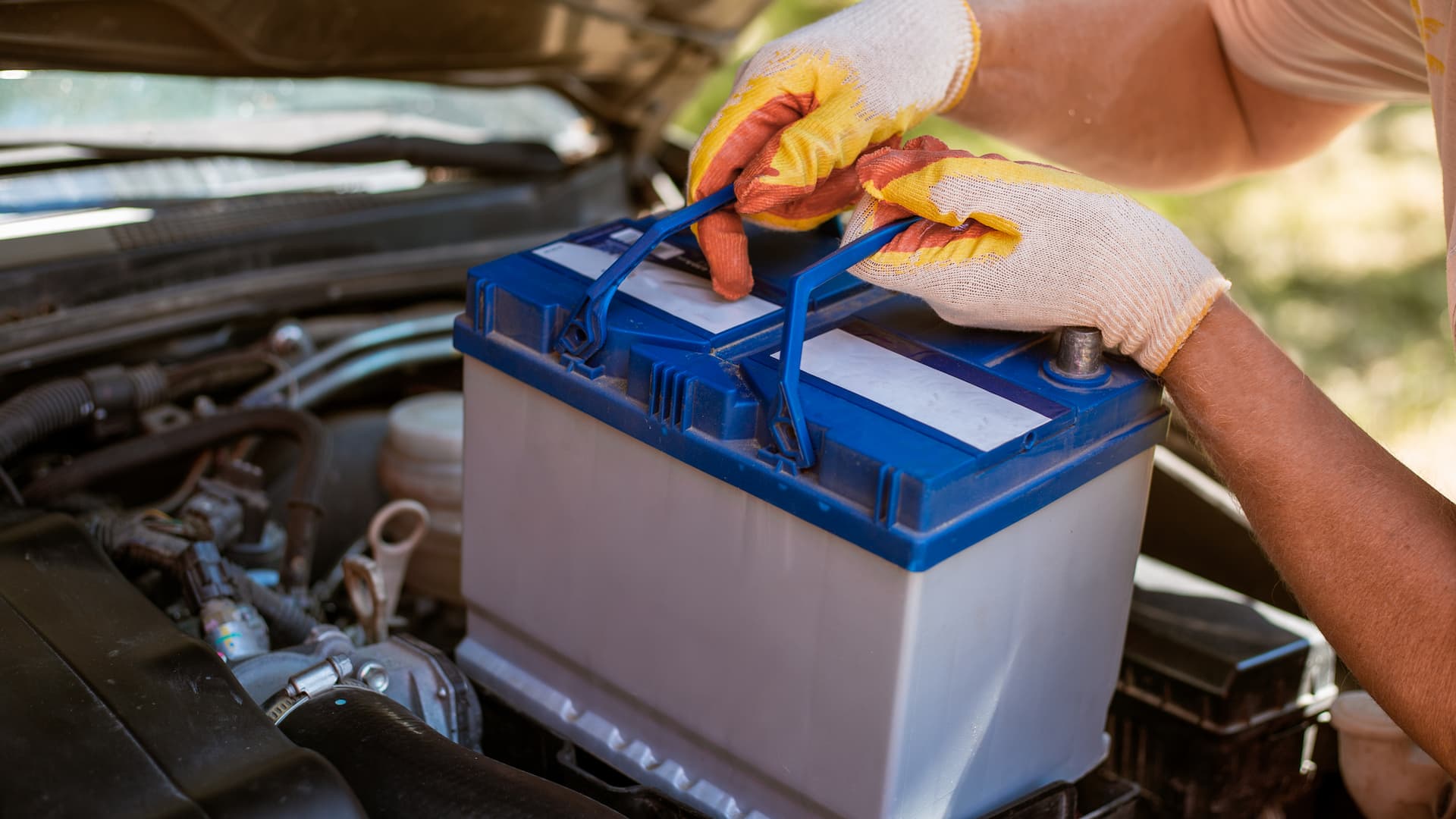
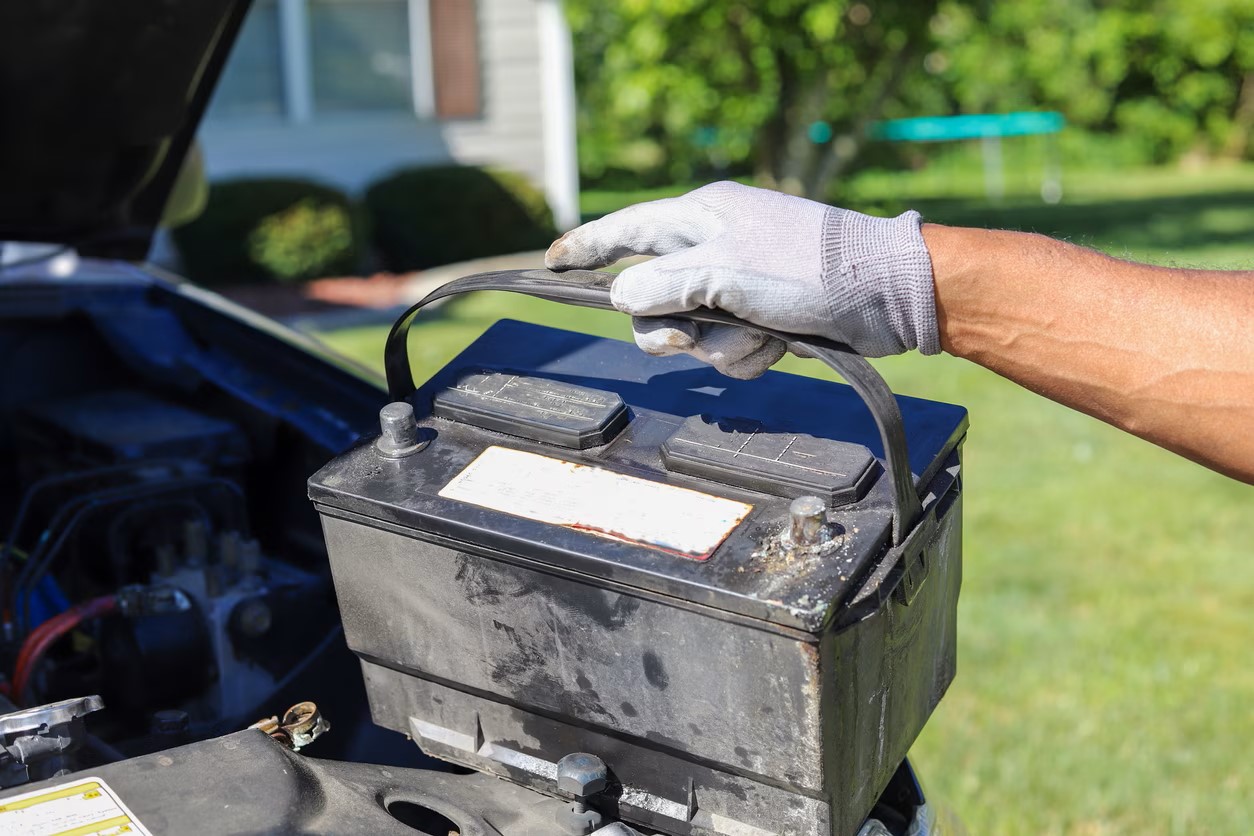
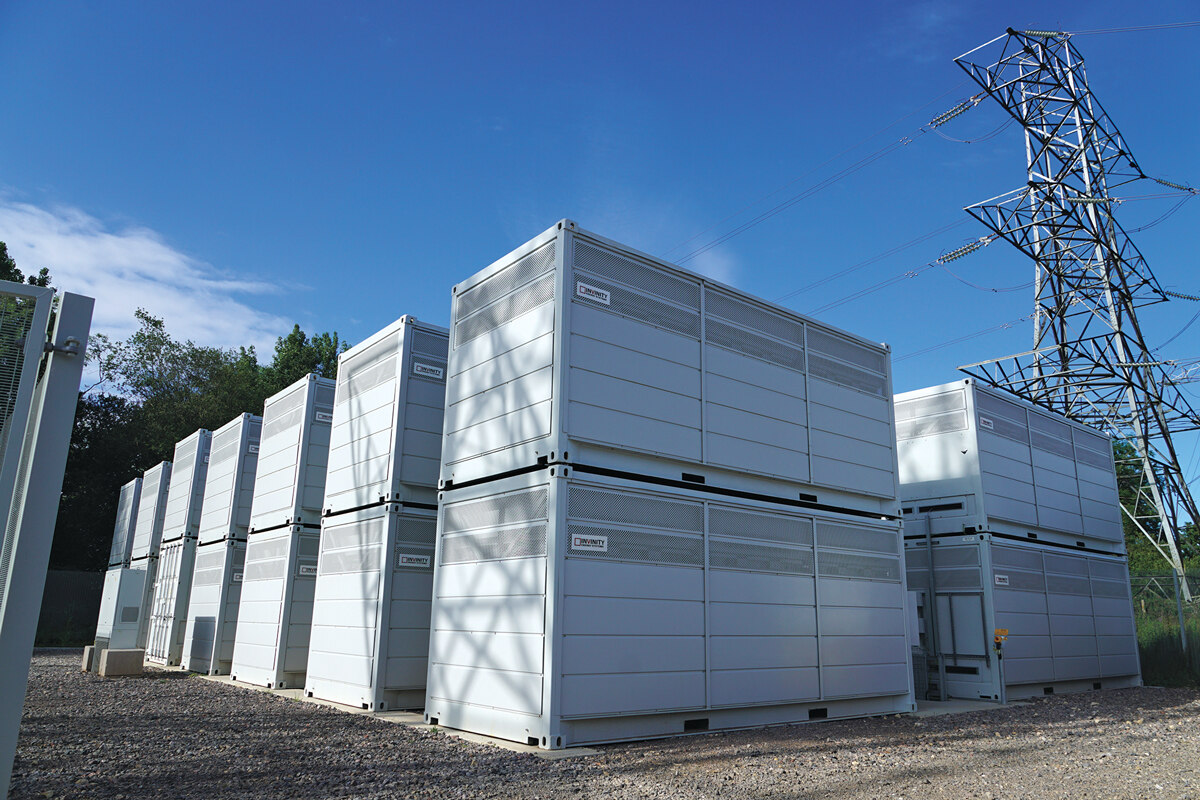


0 thoughts on “How To Store Alkaline Batteries”